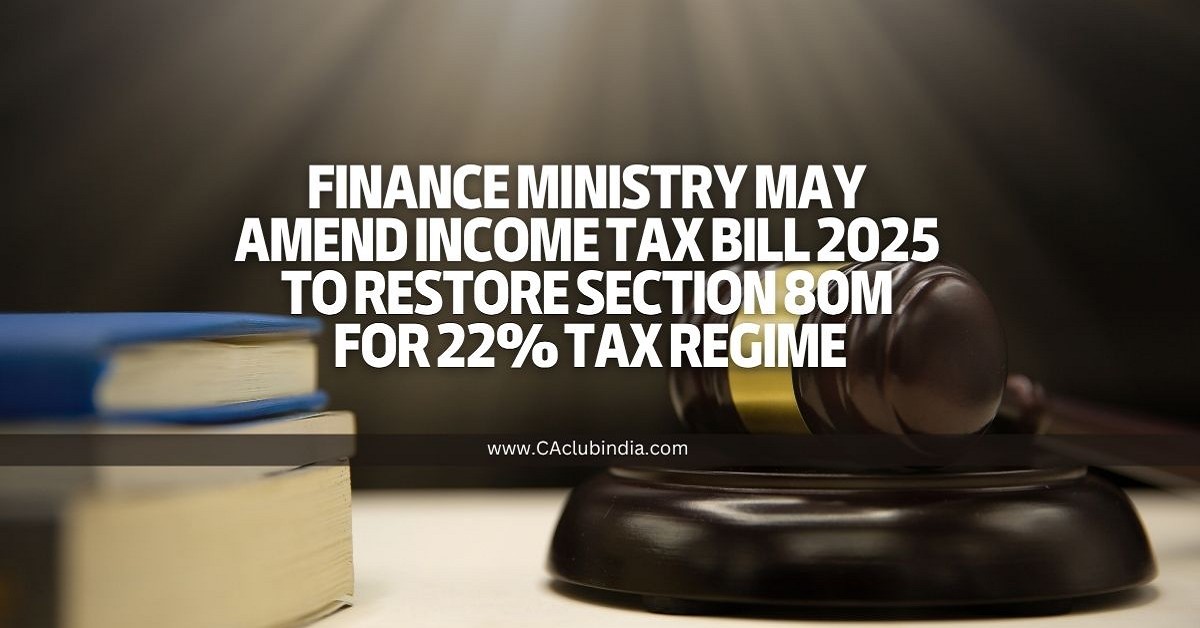The Ministry of Finance is expected to amend the draft Income Tax Bill, 2025, to reinstate Section 80M benefits for companies opting for the 22% concessional tax regime under Section 115BAA. The change aims to ensure fair taxation and eliminate the cascading tax burden on inter-corporate dividends.
According to a senior finance ministry official, "This appears to be an inadvertent omission in the new Income Tax Bill. We will address and rectify it, as taxing the same income twice goes against established principles of fair taxation." The official requested anonymity. An official response from the ministry was still awaited at press time.

Background: Concessional Tax Regimes and Section 80M
Currently, domestic companies are taxed at:
- 15%: For new manufacturing companies meeting specified conditions
- 22%: For companies opting out of exemptions and deductions under Section 115BAA
- 30%: For companies availing regular tax breaks
Section 80M, reintroduced in 2020 following the abolition of the Dividend Distribution Tax (DDT), allows a company to deduct dividend income received from another domestic company, provided it redistributes the dividend to its own shareholders. The provision was essential to avoid double taxation of the same income in a corporate chain.
However, the draft version of the Income Tax Bill, 2025, excludes Section 80M for companies opting for the 22% concessional rate, while retaining it for companies under the 15% and 30% regimes. Tax experts and industry leaders raised red flags, warning that such an omission would result in the same dividend income being taxed twice - once at the recipient company level and again at the shareholder level.
Government Response
Following feedback from industry bodies and tax professionals, the finance ministry has acknowledged that the omission of Section 80M for the 22% tax regime was unintentional.
Next Steps: Select Committee Review Underway
The draft Bill is currently under review by a Parliamentary Select Committee, which is expected to submit its recommendations on the first day of the upcoming Monsoon Session. If the amendment is accepted, it will mark a crucial course correction in India's evolving tax architecture and reinforce the government's commitment to clarity and equity in corporate taxation.








 CAclubindia
CAclubindia
